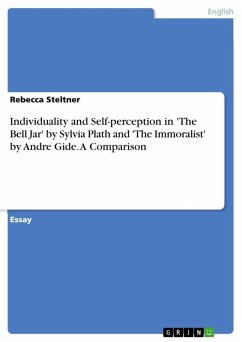Focusing on the first journal in The Unabridged Journals of Sylvia Plath, this book writes a convincing case for the value of corpus-based stylistics and narrative psychology in the analysis of representations of the experience of affective states.
Situated at the intersection between language study, psychology and healthcare, this study of the personal writing of a poet and novelist showcases a cutting-edge combination of quantitative and qualitative approaches, including metaphor analysis, corpus methods, and second person narration. Techniques that systematically account for representations of experiences of affective states, such as those in this book, are rare and crucial in improving understanding of these experiences. The findings and methods of this book therefore potentially have bearing on the study, diagnosis and treatment of depression and other mental illnesses. Zsófia Demjén follows the cognitive turn in both literary studies and linguistics here, emerging with a greater understanding of Plath, her diarized output and her experience of her inner world.
Situated at the intersection between language study, psychology and healthcare, this study of the personal writing of a poet and novelist showcases a cutting-edge combination of quantitative and qualitative approaches, including metaphor analysis, corpus methods, and second person narration. Techniques that systematically account for representations of experiences of affective states, such as those in this book, are rare and crucial in improving understanding of these experiences. The findings and methods of this book therefore potentially have bearing on the study, diagnosis and treatment of depression and other mental illnesses. Zsófia Demjén follows the cognitive turn in both literary studies and linguistics here, emerging with a greater understanding of Plath, her diarized output and her experience of her inner world.









